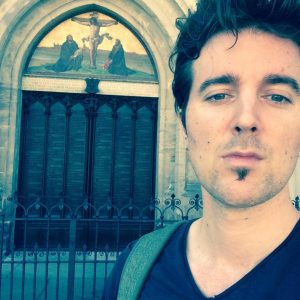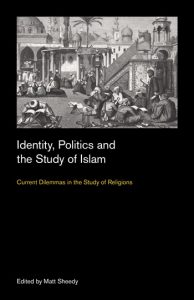“On the Spot” backs members of Culture on the Edge into a corner to talk about their backgrounds, their ongoing work, and what might be gained by an alternative understanding of how identity works.
 1. When people ask what you study, what do you tell them?
1. When people ask what you study, what do you tell them?
My current elevator pitch is that I study religion, culture, and politics in the Euro-West, with an emphasis on North America. When I expand on this description, I typically say that my work centers on questions of religion in the public sphere. On the meta-level this means paying attention to how dominant ideologies, such as multiculturalism, liberalism, and secularism, construct how ‘religion’ is mediated or understood and thus how it functions to regulate group identities in particular ways. As for methodology, I tend to rely on ideology critique, along with discourse and narrative analysis (including theories of affect and rhetoric) to examine the various ways that religion and culture are represented — in news media, film, and popular culture. While my data is, in theory, open to any groups that make these sort of claims, I tend to focus on insiders and outsiders representations of Islam, (North American) Indigenous traditions, atheism, and Christianity.
2. How do questions of identity manifest in your research?
Questions of identity are often central to kind of work that I do. For example, I’ll look at popular examples of how religion (or secularism) is narrated (e.g., by pundits, politicians, or in pop culture) as instances of identity formation. Here the focus is on how actors attempt to draw lines around what, e.g., ‘Islam’ or ‘Christianity’ is, while at the same time failing to reflect upon the ways in which these normative statement function to shore-up their own identities (e.g., as superior, better, more rational, ethical, etc.). In short, this line of inquiry forces us to ask where (and why) people are ‘hiding the ball’? Continue reading “On the Spot with Matt Sheedy”

 This interview is part of a series of interviews on new books from the Culture on the Edge book series with Equinox publishing.
This interview is part of a series of interviews on new books from the Culture on the Edge book series with Equinox publishing.